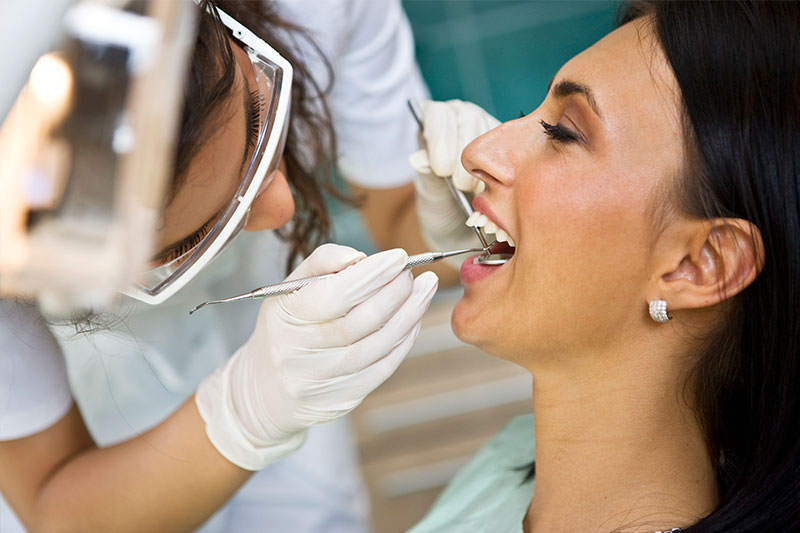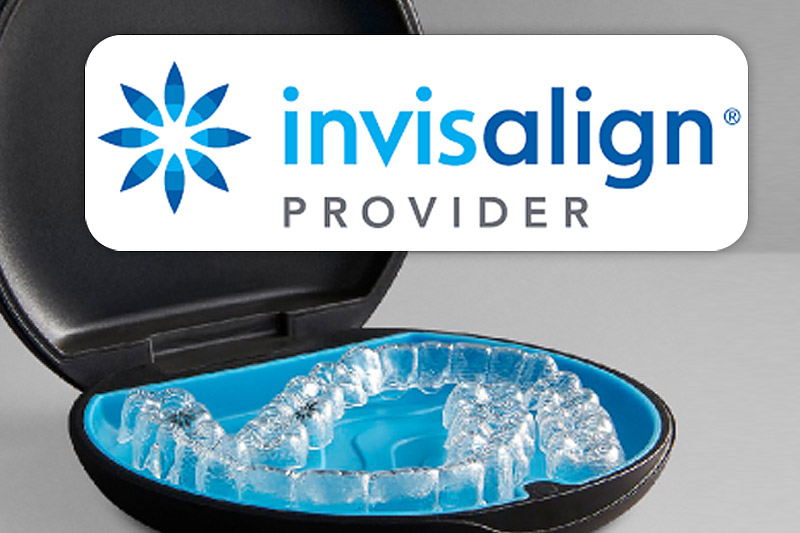Author: admin
Affordable Dentist Near Me, Watertown MN
Getting affordable dental care is important to help you save costs on taking care of your dental health and oral hygiene. When in search of an affordable dentist, consider our practice. We are dedicated to providing exceptional dental care and high-quality services without compromise. Our experienced team is proud to serve you and your family. We can help you and your family achieve a healthy and bright smile at an affordable price.
Range of treatments
We provide a full range of dental treatments, including dental hygiene, general family dental care, restorative dentistry, cosmetic dentistry, emergency care, and so on, allowing your entire family to receive their dental care under one roof. This means that you can book your appointments at the same time to save on time and money that would be spent moving between different practices. That said, each treatment plan is individually tailored around every patient’s needs, so you receive the level of care that is best suited to your needs.
State-of-the-art dental equipment
Our investment in the newest dental equipment allows us to provide you with innovative treatment options, and to develop well tailored treatment plans that address your specific needs. This means that we will not only identify looming dental problems in their earliest stages so we can introduce simple and low-cost interventions in time, but also provide complete treatment plans for serious problems to restore the optimal function and aesthetic of your mouth. Moreover, our modern treatments ensure a comfortable experience and focus on minimal intrusion and maximum preservation of your natural tooth, which translates to faster healing, quick recovery time, and long-lasting dental work.
Need an Affordable Dentist Near Me? Call Us Today
If you’re looking for an affordable dentist near me, who will help keep your bright smile and offer excellent dental care. We offer affordable, reliable, and highly professional dental services. From dental exams to routine teeth cleanings, teeth whitening, and other dental procedures, we offer quality treatments at an affordable price. Call our office today to discuss possible payment plans and financing options.
Tooth Colored Fillings In My Area | Watertown MN
Tooth colored fillings, refer to dental filling materials made from composite or plastic, which are designed to match the color of your teeth. They provide you with a discreet way to repair damaged or decayed teeth, since tooth colored fillings blend with the teeth’ natural appearance and surrounding structure.
This means that tooth-colored fillings are personalized dental restorations that are tailored to not only repair your damaged or decayed teeth, but also match the color of existing natural teeth. Your dentist may recommend composite resin fillings for the following reasons:
- As a treatment for cavities.
- To restore fractured or chipped front and back teeth where aesthetics is a concern since they maintain the natural appearance of your teeth.
- To restore your beautiful smile and allow you to smile with confidence, since the filling material blends seamlessly with the surrounding teeth and is virtually unnoticeable
- To maximize the strength of a repaired tooth by minimizing the amount of healthy tooth structure removed during the filling process.
- To maximize the longevity of the restored tooth, since the material is resistant to expansion and contraction. This reduces the risk of fractures compared to metal fillings
- To help you achieve a whiter smile, since tooth colored fillings are not at risk of discoloration, especially when considering tooth whitening in the near future
Schedule a Consultation Today!
Tooth-colored fillings can help restore the full function of your mouth and improve your smile. Our dentist can offer you custom-shaded fillings that will match the color of your surrounding teeth. Our experienced dentist will take you through the details of everything involved in the tooth colored fillings procedure. With this, we can help restore the natural appearance of your teeth.
Contact our dental practice today to find out more about tooth-colored filling dental procedure and enjoy the benefits of a beautiful smile. Our dentist will be happy to meet with you and discuss your dental options.
Most Recommended Dentist Near Me, Watertown MN
Your natural teeth should last a lifetime with proper care and maintenance. That is why you need a reliable dentist near me to help provide adequate care for your dental health, treat dental issues, and adjust your overall dental hygiene routine as your needs change. But before choosing a new dentist, it is important that you carry out detailed research. If you need a top rated dentist near me, our dental practice is the ideal place to turn to.
We are a reputable dental practice committed to offering top-class dental services and solutions to both young and adult patients. At our dental practice, we work with a dedicated team with several years of experience in various dental procedures. We offer dental exams, routine cleanings, and other advanced dental procedures at our deluxe dental office.
Preventative Dental Care
We firmly believe in preventive dental practices, such as proper at-home oral hygiene and regular dental visits for professional teeth cleaning. Our dentist can help you with this to reduce the risk of dental problems in the future. Moreover, with regular checkups, we can restore damaged teeth at the earliest stage possible to reduce the discomfort and tooth deterioration associated with untreated dental problems.
Restorative Dental Services
Dental emergencies can arise any time. As such, it’s important to have ready access to a top rated dentist near you to provide the necessary treatment. Our experienced dentist and dental team performs a wide range of dental procedures using state-of-the-art dental equipment, the newest techniques, and advanced technology. Whether it is a minor or major issue with your teeth or gums, our dentists will offer a fast, efficient, and lasting solution.
Cosmetic Dental Services
A bright and healthy smile exudes confidence. This is our responsibility to our patients to create beautiful, healthy, and confident smiles through our restorative and cosmetic dental procedures. Our compassionate cosmetic dental services and procedures will help you achieve the healthy gums and brilliant smile you always wanted.
Contact Us Today!
Call our dental practice today to schedule an appointment with our experienced dentists. We offer affordable, reliable, and highly professional dental services. Our trusted dental team will be happy to meet with you and discuss your available dental options.
Tooth Colored Fillings Near Me, Watertown MN
Searching for tooth colored fillings near me? Our dental practice is the right place for you. We are dedicated to providing excellent dental services. Our experienced dentist will take you through the details of everything involved in the tooth colored fillings procedure. With this, we can help restore the natural appearance of your teeth. But how much do you know about tooth-colored fillings or their benefits?
What are Tooth Colored Fillings?
Tooth colored fillings, also known as composite or plastic fillings, are designed to match the color of your teeth. Thus, making it possible for the fillings to blend with the teeth’ natural appearance and surrounding structure. Tooth colored fillings can be used in the front or back teeth.
What Are the Benefits of Tooth Colored Fillings?
Tooth-colored fillings are personalized dental restorations made using composite resin. Some of the benefits include:
- Helps restore the natural appearance of your teeth.
- Restores your beautiful smile and allows you to smile with confidence.
- Blend seamlessly with your surrounding tooth and are virtually unnoticeable
- Improve your teeth’s strength by minimizing the amount of healthy tooth structure removed during the filling process.
- Resistant to expansion and contraction, which reduces the risk of fractures compared to metal tooth fillings
- No tooth discoloration, which makes it easier to maintain your white, bright smile
- Also, tooth-colored fillings are very durable and will serve you for an extended period.
Furthermore, tooth-colored fillings are a great option for cavity treatment. Our dentists can offer you custom-shaded fillings that will match the color of your surrounding teeth.
Schedule a Consultation Today!
Tooth-colored fillings can help restore the full function of your mouth and improve your smile. Contact our dental practice today to discover more about this dental procedure and enjoy the benefits of a beautiful smile. Our dentists will be happy to meet with you and discuss your dental options.
Top Rated Dentist Near Me, Watertown MN
A quality dentist can help provide adequate care for your dental health, treat dental issues, and eventually improve your overall dental hygiene. However, before choosing a new dentist, it is important that you carry out detailed research. If you need a top rated dentist near me, our dental practice is the ideal place to turn to.
We are a reputable dental practice committed to offering top-class dental services and solutions to both young and adult patients. At our dental practice, we work with a dedicated team with several years of experience in various dental procedures.
We Perform Dental Procedures with State-Of-The-Art Equipment
The experienced dentists at our dental practice perform dental procedures using state-of-the-art dental equipment, sophisticated techniques, and advanced technology. Our compassionate staff members will welcome you with an inviting smile and make you feel comfortable throughout your time at our facility. Whether it is a minor or major issue with your teeth or gums, our dentists will offer a fast, efficient, and lasting solution.
Let Us Help Restore Your White Teeth and Bright Smile
Are you looking for a top rated dentist near me to help improve your oral health? A bright and healthy smile exudes confidence. This is our responsibility to our patients to create beautiful, healthy, and confident smiles through our restorative and cosmetic dental procedures.
At our dental office, we offer a variety of dental treatments. We firmly believe in preventive dental practices, such as proper at-home oral hygiene and regular dental visits for professional teeth cleaning. Our dentist can help you with this to reduce the risk of dental problems in the future. Moreover, with regular checkups, we can restore damaged teeth at the earliest stage possible to reduce the discomfort and tooth deterioration associated with untreated dental problems.
Our compassionate dental services and procedures will help you achieve the healthy gums and brilliant smile you always wanted.
Contact Us Today!
Call our dental practice today to schedule an appointment with our experienced dentists. We offer affordable, reliable, and highly professional dental services. Our trusted dentists will be happy to meet with you and discuss your available dental options.
Common Questions: Teeth Whitening Treatment Near Me, Watertown MN
If you want to get your teeth whitened, it’s important that you research the right dentist and dental practice. The procedure is safe and effective when done by an experienced dentist during the first visit and supervised by a dentist for subsequent treatments. Yet, before you get your tooth whitening procedure done, it is important that you visit a dentist for an examination and diagnosis to ensure you are a good candidate.
Here are some questions to help you choose the right dentist:
Can teeth cleaning and polishing make my teeth whiter without bleaching?
Professional teeth-cleaning and polishing is done to remove tartar that’s caused by drinks like tea and red wine, tobacco products, foods, and more. However, this will not change the color of stained or yellowing teeth. Teeth cleaning can help you remove deep stains and discoloration that won’t go away with routine cleaning and polishing.
What is in-office teeth whitening?
The dentist applies a bleaching product (usually hydrogen peroxide) on the surface of your teeth using trays that fit snugly on your teeth. The tray sits in place for a short period of time to break down the agent, resulting in an oxygen compound that penetrates tooth enamel.
Will I achieve the results I want?
Yes. Most cases of tooth whitening are successful. That said, the treatments work differently depending on the extent of discoloration or staining at the start of the procedure. Your dentist will discuss your treatment plan with you and inform you of the best ways to whiten your teeth, as well as any difficulties that may arise, and what the expected results are.
Can teeth whitening be done outside a dentist’s office?
It’s recommended that you consult a dentist to design your bleaching plan that can then be done in the office or at home with a customized teeth whitening kit. The best dentists will lay out your options, the expected time(s) for improvement, and the duration of treatment if you want to undergo dental whitening.
In which situations might tooth whitening be unsuccessful?
Tooth whitening only helps to improve the shade of your natural teeth. This means that it may not be successful when used on unhealthy teeth, teeth with exposed roots, or teeth that have been restored with fillings, crowns, veneers, or have received root treatments.
Please consult your dentist to discuss your bleaching plan and the expected results of your teeth whitening treatment.
Infected Tooth & Dental Extractions – FAQs | Watertown MN
It is normal to have bacteria living on various parts of the teeth and mouth, but tooth infections can happen when bacteria penetrates the outer surfaces of the teeth-that contain enamel or damaged dentin. The infection typically settles in deep pockets as it cannot be reached through brushing alone.
Poor dental hygiene, tooth injury, and dental procedures cause cavities and fractures that trap bacteria and allow plaque to build up. A dentist may fill or crown a cavity immediately to stop the erosion of teeth. If left untreated and the infection reaches the pulp, a condition known as pulpitis may result, causing you to experience a toothache or sensitivity that is aggravated by hot and cold liquids and foods. If the infection continues to spread through the tooth, it may form a pocket of pus known as an abscess.
Treatment options for tooth infections
If you have pulpitis, your dentist may advise root canal therapy to remove the infection and preserve your natural tooth. After the tooth has been treated, it will need to be headed or capped in order to restore its strength and stability.
Once an abscess from tooth decay forms, the pus needs to be drawn out of it. If you can’t save the tooth with root canal therapy and if there is pain or continued infection, often the tooth has to be extracted. Pus removal can occur before or after the extraction. If your dentist finds that extracting the tooth before treatment may allow the infection to spread and cause other complications, such as compromising the healing process after tooth extraction, then your dentist may recommend treating the infection before tooth removal to reduce these risks.
Generally, you will need to take pain medication and some antibiotics for a few days before your surgical tooth removal to remove bacteria in the area, as well as after tooth extraction to prevent infection when healing.
If you have any of these symptoms, be sure to see your dentist as soon as possible to save the tooth or schedule an extraction.
When Do I Need White, Tooth-Colored Fillings? Watertown MN
Tooth-colored fillings are used to treat cavities or weakened teeth. To get a tooth-colored filling, your dentist chooses a material that matches the shade of your natural teeth when filling the cavity. This allows you to discreetly repair your teeth and restore them to their full form and function, while enhancing the beauty of your smile.
Here are some reasons to get white, tooth-colored fillings:
- They provide a strong and durable material that can help restore decayed teeth, repair chipped teeth, and close unsightly gaps between your teeth.
- They look natural compared to your own teeth. This is because the filling material is matched to your natural tooth color and then bonded directly to the tooth, giving you a restoration that is both discrete and understated.
- The procedure is brief and generally takes about an hour, so it doesn’t require you to miss a full day of work. However, the amount of time taken for the white fillings depends on different factors including cavity size, location and number needed.
Are White, Tooth-Colored Fillings Right for you?
To determine if white tooth colored fillings are right for you, it is important to know your requirements before beginning the procedure. You should visit a dentist for an examination of the teeth that need filling followed by customization of the tooth-colored fillings made with composite so they match your enamel and blend in when you smile. Please call our office to book your consultation appointment.
Contact Us Today!
White tooth-colored filling is an excellent restoration choice to restore your teeth because of the numerous benefits it offers. If you still have more questions about white tooth colored filling, contact our dental practice today. Our dentists will be available to discuss with you and provide suitable answers to your questions and concerns.
Affordable Dentist In My Area, Watertown MN
Getting affordable dental care is important to help you save costs on taking care of your own dental health and oral hygiene. When looking for a dentist, consider our practice; we provide exceptional dental care and high-quality services without compromising either. Our experienced team is proud to serve you and your family, which can help you achieve a healthy smile at an affordable price.
Range of treatments
We provide a full range of dental care, including preventive appointments like routine teeth cleanings and hygiene, general family dental care, cosmetic dentistry to improve the look of your smile as well as restorative dentistry. This means that you can book your appointments at the same time to save on time and money that would be spent moving between different practices. That said, each treatment plan is individually tailored around every patient’s needs, so you receive the level of care that is best suited to your needs.
State-of-the-art dental equipment
Our investment in the newest dental equipment allows us to offer you innovative treatment options, and tailor a specialized plan just for your needs. We will not only identify looming dental problems early and introduce a simple solution, but also provide the complete treatment plan for major dental issues to restore your mouth’s function and appearance. For these reasons, our modern treatments are designed to be more comfortable and they focus on minimal intrusion yet maximum preservation for your natural teeth. This leads to faster healing, shorter recovery time, and long-lasting dental work.
Need an Affordable Dentist Near Me? Call Us Today
If you’re searching for an affordable dentist who will not only offer reliable, high-quality care but also manage to keep your smile bright and healthy, then call our office today. We offer affordable, reliable, and highly professional dental services. From dental exams to routine teeth cleanings, teeth whitening, and other dental procedures, we offer quality treatments at an affordable price.
Call our office today to discuss possible payment plans and financing options.
Help Whiten Your Teeth with These In-Office Options in Watertown MN
People can tell a lot from the shade of your teeth, including your age, state of oral health, and even your good and bad habits. And since everyone wants to look young and well groomed, teeth whitening has become one of the most popular cosmetic procedures in dentistry.
The advancements in tooth care have made the treatment more comfortable, predictable, long-lasting and affordable for all people. Although there are many effective ways to whiten your teeth, they vary depending on the treatment time and frequency, type of stain that can be removed, and the level of whitening that can be achieved.
There are many different teeth whitening methods available:
Professionally applied bleaching treatment:
With in office tooth whitening, the dentist applies a low concentration of bleach to the surface of your teeth using trays that fit snugly around your top and bottom teeth. After the in-office treatment, your dentist may give you some hydrogen peroxide gel and custom-made trays to continue your treatment at home for a specific period of time to maximize the teeth bleaching results
Dentist-prescribed treatment:
Your dentist will provide you with a home whitening kit containing trays and granules that have been tailor-made for your teeth. Whitening at home is a gradual process, but starts to show color payoff in two weeks or so.
Which option is the best?
It’s best to consult a dentist for a thorough examination of your teeth so your treatment can be tailored to your unique needs. During your first appointment for professional teeth cleaning, your dentist will examine your teeth carefully, review your oral health history, and then determine whether bleaching is right for you. Please visit your dentist today to discuss your teeth whitening goals and smile concerns.

New Patient Exam Xrays and Regular Cleaning $67
Includes consultation, exam, and x-rays. In the absence of periodontal disease. New Patients Only
Make Appoinment
Invisalign
With advances in dental technologies, it is now possible to straighten your teeth discreetly without the use of traditional metal braces.
Learn more










